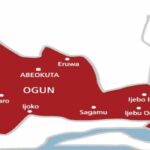
It’s just past nine o’clock in the morning when Mrs Rejoice Steven steps out with a baby on her back to fry another round of akara. Unlike many sellers of akara and yam in Kuje Area Council of Abuja, she’s privileged to have a ready market for this age-old combination, right outside her home’s gate.
From Nigeria’s north to its south, this combination, akara and yam aka Kosh and dosh, is arguably the country’s most popular street food, and Mrs. Steven’s side of the story only begins to explain this.
Angling for an affordable business to start-up, N2000 was enough for her to buy some beans, yam, potatoes and other items she needed to begin frying and selling this fast food. Soon enough, she made an interesting discovery: “some customers like to eat akara and yam when there’s pepper sauce to go with it, and akara and sweet potatoes when there’s no sauce,” she said.
Initiated
Growing up in Etsako west, Elele Uzarie in Edo State, Idemuza James recalled how yam and akara was enjoyed. “We saw our parents eating the combination. So, even when we are far from home, when we eat yam and akara, we feel at home,” he said, adding that he prefers that particular combination to akara and sweet potatoes which he described as too sweet.
“Potatoes has the tendency of choking me, so yam and akara is just the perfect combination,” Albert Gana, who grew up eating yam and akara in Kaduna backed up James’s argument.
Intriguingly, Olufemi Gbenga who was brought up in Kano is more familiar with just akara pushed down with pap. “I’m from a Yoruba family and that is what I grew up eating,” he said. However, relocating to Abuja in 2018 Gbenga came to enjoy the akara and yam combo.
 |
Night, daytime
In some parts of the country, sellers fry only in the mornings and evenings, while some do so throughout the day to meet up with demand. But in yet some areas, yam and akara on display by the roadside is quickly replaced by the sight of warm ash before 12 noon. At least until evening, then the fires are rekindled. But this is different in Lagos, where it’s really big business. Akara is popularly served with pap in the mornings and with fried yam any time of the day.
Made with a combination of bean paste, fresh onions and salt, this delicacy isn’t likely to become unpopular any time in Nigeria’s future.
At Oju-Irin in Agege, still in Lagos, a middle-age woman, Mama Ibeji narrated how she started her business two years ago with just N5, 000 and has no regrets. Another woman, Mrs Okodua whose kiosk is located around Oke-Ira road at Ogba said she started her business 17 years ago. Today, she has customers who can’t do without the food daily.
Adeola Adebayo, a customer said eating fried Akara with yam has been part of his life, especially in the afternoon. He pointed out that it serves as his lunch every day and relieves him of trekking farther away to buy food.
Farther north, in Kaduna, the yam and akara story is not different from that of Lagos, Edo or Abuja. It’s also popularly served with pap and in some cases, plantain.
Mrs Patricia Ngbuwufo is the Chief Executive Officer of one of the popular akara eateries in Kaduna. Her place is located in the heart of the city, at Abuja road by Lagos roundabout. She started the business in 1994 with far less than N100, which was big money, but noted that her commitment and perseverance has kept her going.
“I chose to fry yam and akara because I discovered that most people seem to like it and it’s generally enjoyed by many.
“Initially, I started with only bean cake, later customers started demanding for fried potatoes and yam and then plantain. I used to fry only in the evenings, but to meet the demands of our customers who come from Gonin-gora, Sabo, Barnawa, Narayi, Kakuri, and other areas, we adjusted our opening time from 4pm to 12 noon and close nine o’clock at night.”
When it comes to the akara and yam treat, everybody, whether young, old, male or female patronise her, Mrs. Ngbuwufo pointed out. Sometimes she makes up to N15, 000 per day, and if there’s a downside for her, it’s simply the heat and smoke from the firewood which hurts her eyes.
Unlike some competitors in the business, Mrs Ngbuwufo benefits from a microfinance bank loan to buy what she needs. “I have also bought a deep freezer and generator with which I sell cold drinks in my provision store. The business is worthwhile but you need a lot of commitment and perseverance to be stable,” she said, adding that women must find something doing to help support their family. “With the economic situation of the country, the man alone cannot carry the burden of the home, but when the woman is productively engaged, she will be able to assist.”
An inheritance
In Kano, it was gathered that while some women selling akara in the commercial city got involved due to unemployment, while for others it was an inheritance from parents.
At Batter, a popular spot in Fagge Local Government Area, a 22-year-old secondary school leaver, Blessing Obadiah occupies a strategic location where she sells akara and pap during rush hours. As a result, people are easily attracted and stop over to take their breakfast before proceeding to their workplaces.
Blessing inherited the business from her late mother about three years ago. However, her interest in the business began from childhood when she used to lend a helping hand to her mother. So, when her mother died, she decided there was no need to stop running things as they were.
“I thank God for what I am gaining out of it. I can truthfully say that I don’t borrow money, but rather, lend out to other people,’’ she said, adding that she realizes at least N 7000 daily, and that out of her savings she was able to acquire a set of furniture worth more than N200, 000 in preparation for her upcoming wedding.
Long ago Blessing’s mother had started her business adventure as a restaurateur, but later discovered that the gain from it was not sustainable and opted for simply making akara and pap. It was through this effort that Blessing, and five other siblings, were sponsored through school.
“All of us have rounded off secondary school, and by God’s grace, in three months’ time, I will get married and immediately after enrol for National Certificate in Education (NCE) at the Federal College of Education Kano,’’ Blessing added.
More stories
There are many success stories of the akara business, and Malama Hassana Isah’s is another. Perhaps this is why the food continues to remain popular, and no wonder, has spread from Nigeria (where it originated) to other West African countries, such as Ghana, Togo, Mali and so on.
However, Malama Maryam Jubrin has a different story to tell, and laments how poverty and unemployment among youths may be affecting the business.
“For over five years I have been doing this business and sponsored four children in school, one of whom is currently in a University in Yola. But if you are to look at the challenges surrounding the business, things are no longer the same. There is no money in circulation, and as a result, we sometimes close with loads of left-over,’’ she said.
Mrs Ngozi Aloke, 40, resident at Port Harcourt Street, Ogui New Layout, Enugu said hardship forced her into the business of frying akara, yam, plantain and potato, a trade she has engaged in since the last six years. She also roasts corn during its season, but her main occupation is frying akara for sale. Perhaps this is why she knows that white specie of beans is the best in preparing akara balls, noting that the other species of beans are not good for akara, “because they absorb too much oil when put into boiling oil and customers dislike akara that is too oily.
“After grinding the beans, you have to be very careful while scooping it from the bowl so that your fingers don’t touch it, because such mistake could make the remaining paste go bad instantly,” Mrs. Aloke said as she attended to customers.
Like some businesses, frying akara could be affected more by the rainy season, while dry season is the best period for the trade, Mrs Aloke pointed out.
But how did akara and yam become a staple food in Nigeria. “I saw people doing the business and I joined. I don’t know who started it first,” she said.
Surprisingly, Mrs. Aloke said she will encourage any of her children, who shows interest in the business. Particularly “as a substitute for white collar job, which is hard to find these days,” she pointed out, adding that “at least before something better comes their way.”
Already, Blessing, her fourth child, shows interest in her mother’s work. As she washed some potatoes, she admitted with a smile, “I like helping my mum with her business.”
Mrs. Aloke also receives a lot of support from her husband who sells newspapers, after all, together they take care of the children with their earnings.




